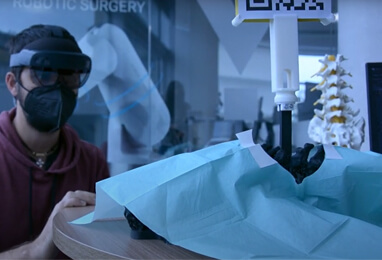Get to know the assets of the BDIH: Viulib, the real-time image analysis software library of VICOMTECH
The Viulib library encompasses a large set of techniques and algorithms related with computer vision that together become an efficient and flexible tool to address the solutions demanded by the market.
Vicomtech, via this library, offers a service oriented to the superficial inspection of components, based in photometric stereo techniques, both for online inspection mechanisms and for others on board of robots. To this end, the camera or photometric stereo system is integrated in a robot which allows them to inspect the entire component or specific regions through its movement.
The Viulib library also has high-level capabilities for facial identification or gestural recognition which allows Vicomtech to offer services oriented towards collaborative robotics schemes, a sector which demands flexible solutions for the interaction and communication between workers and robots. In addition, the high capabilities for continuous monitoring of people offered by the library through the application of computer vision techniques provides additional security services in scenarios where there is a very close interaction between workers and robots, avoiding possible accidents.
Use case
The Cyber Surgery company has used this software library for the development of a robotic assistant for spine surgery procedures. The use of this library, oriented to industrial needs related to the surface quality inspection of components and process control by means of 2D computer vision, combined with the technology provided by the Microsoft’s Hololens 2, has permitted Cyber Surgery to develop a system for the execution of minimally invasive spine surgeries making it easier for the patient’s recovery.
As part of the BIDH’S Flexible Robotics node, Vicomtech has made available for Cyber Surgery various computer vision banks and robots endowed with different lighting and image acquisition equipment in order to perform all the necessary tests for the development of its proprietary system.
We invite you to watch the video in which the persons in charge of Cyber Surgery explain in detail what its robotic assistant for spinal surgery procedures does and how it has benefited from the assets of the BDIH to get on track.
Another of the success stories related to the use of this asset developed by Vicomtech Grabit company. This startup, in addition to its artificial vision system, has used the real-time image analysis software library and prototypical neural networks to improve one of their products.
This is a supermarket scale, which, thanks to the technology provided by the BDIH, has achieved greater product detection capacity and precision in its measurements. Don’t miss the Grabit video, where the project managers explain what they have done while working in this case.
Related news

Companies with greater gender equality perform better in terms of innovation and are more competitive
The study of the SPRI initiative "Women in Industry" shows that gender equality has an impact on the improvement of company results.
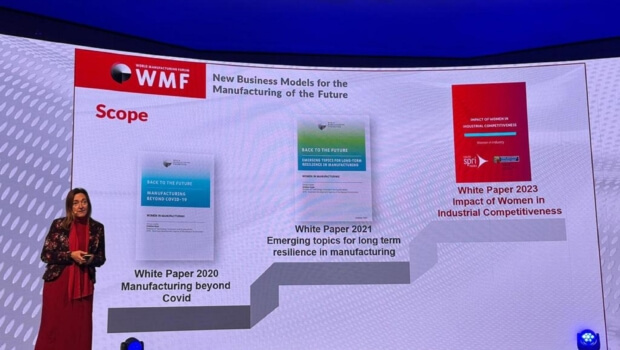
SPRI presents the results of the study on the impact of women on industrial competitiveness at the World Manufacturing Forum
The reports is the continuation of the work carried out by the SPRI Group and the Foreign Network office in Milan since 2020 as leader of the Women in Manufacturing expert group.
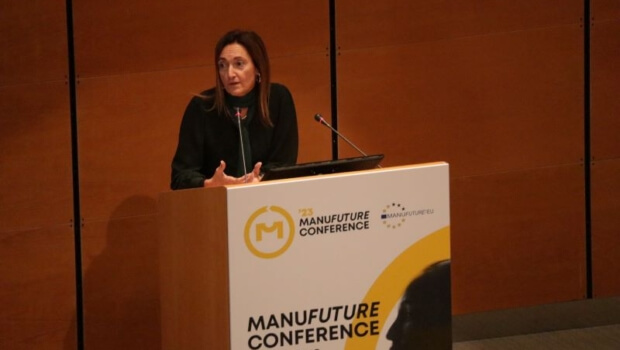
Europako fabrikazio-ikerketaren etorkizuna
Donostian, egunotan, MANUFUTURE Conference 2023 egiten ari da, hau da, fabrikazio-industriaren etorkizunari buruzko Europako konferentzia.
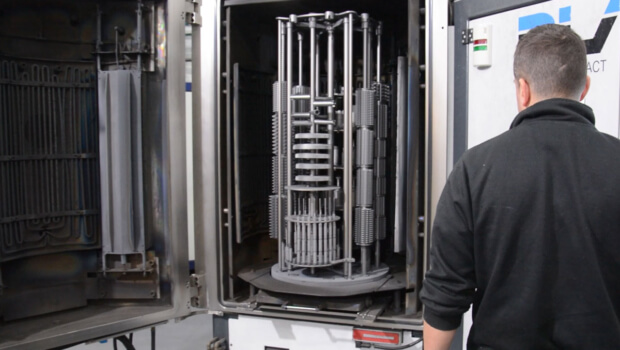
Get to know the assets of the BDIH: 5-axis multi-process milling cell, capable of very high speed operations
The University of the Basque Country offers Basque companies, via the BDIH, the possibility to have at their disposal a 5-axis multi-process milling cell, capable of very high-speed operations.
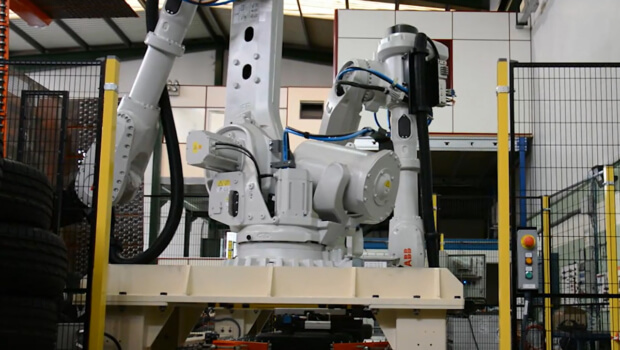
Get to know the assets of the BDIH: Inspection/measurement robotic cell using non-destructive techniques
Tekniker gives the opportunity to Basque companies, by means of the BDIH, of having at their disposal a cell which permits to carry out analysis for the quality control and the non-destructive inspection of pieces.
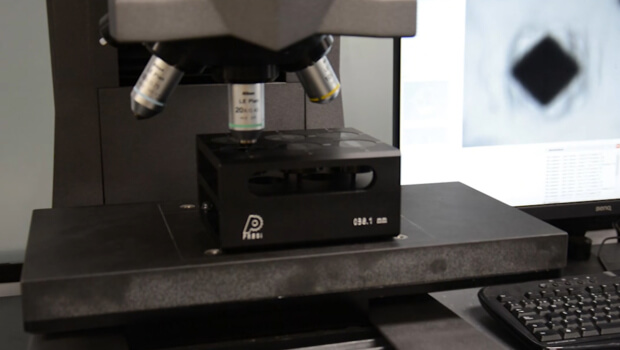
Get to know the assets of the BDIH: Equipment/Techniques/Methodologies for the study and evaluation of corrosion
Cidetec offers Basque companies, through the BDIH, the possibility of testing their materials with in the order to know their corrosive capacity. For this purpose, the asset uses accelerated and cupro-acetic corrosión climatic chambers, as well as electrochemical and localized techniques for the corrosion studies.
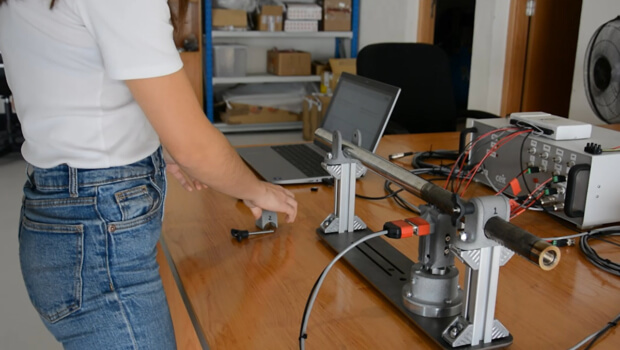
Get to know the assets of the BDIH: Systems for mechanical properties and microstructure determination by magnetic non-destructive measurements
CEIT offers companies, through the BDIH, the possibility of access to quality control systems to detect failures or inspect subsurface processes in a non-destructive manner, allowing costs to be reduced and avoiding wasting parts that could be sold

The Enterprise Europe Network offers Basque companies advice on technological development and the international commercialization of innovative products and services
The Enterprise Europe Network (EEN) has established itself as the perfect public sector tool to complement the efforts of Basque companies in internationalizing their R&D&i and their business in general. Through its advisory and assistance service in the transfer of knowledge, technology and innovation, more and more SMEs are seeing...
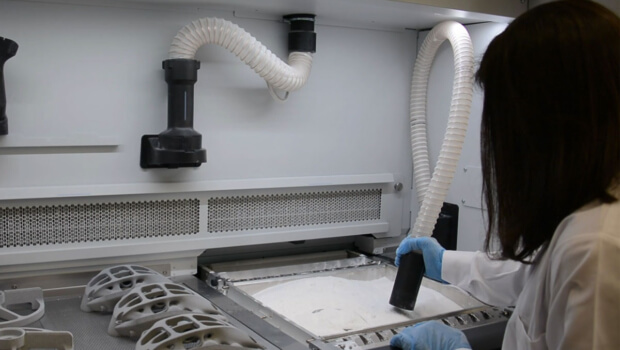
Get to know the assets of the BIDH: PVD pilot line coating facilities for industrial components of Tekniker
Tekniker offers Basque companies, via the BIDH, the possibility of developing by means of PVD technologies coatings for plastic and mechanical components as well as solar collectors with different properties depending on its industrial application.
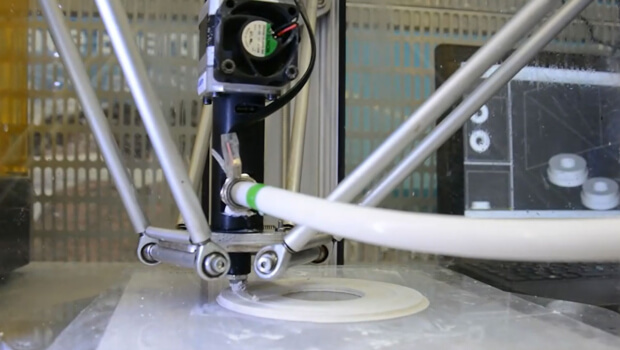
Get to know the assets of the BDIH: Parts development centre using Binder Jetting technology
Tecnalia, as an agent belonging to the node of Additive Manufacturing of the BDIH, offers Basque companies the development of powder bed processes for the direct manufacturing of parts with different shapes and large surface coatings made of metallic, ceramic or composite materials.

